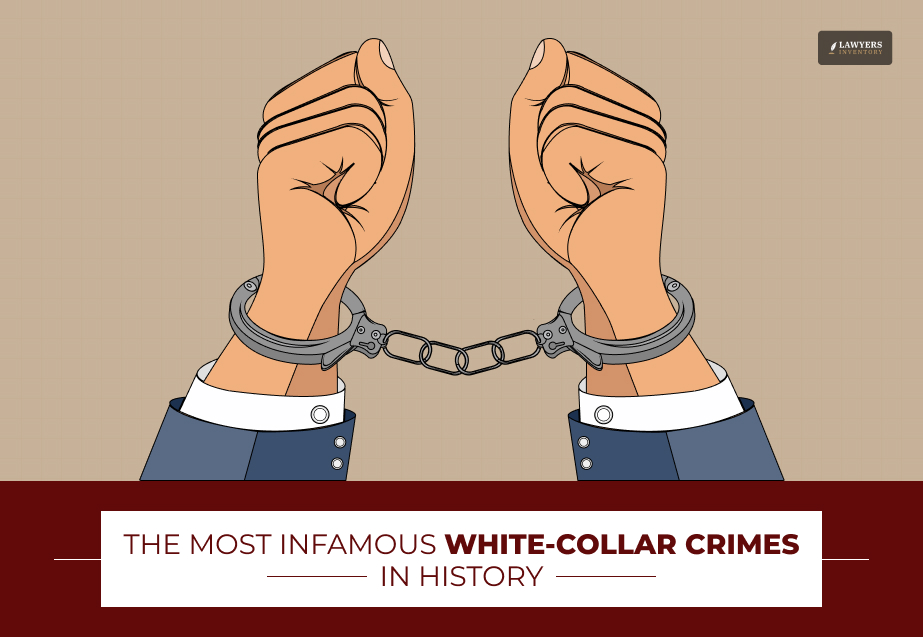
Colorado Springs is home to thriving businesses, but like any major city, it has seen its share of financial scandals. So, what are these white collar crime cases that have made history? And, most importantly, what are white collar crimes?
Well, for starters, white-collar crime involves fraud, embezzlement, and other financial schemes that devastate individuals and corporations.
These crimes can lead to complex legal battles and long-term financial consequences. Those facing such charges seek guidance from a Colorado Springs white-collar crime attorney who understands the intricacies of corporate fraud cases.
What is a White-Collar Crime?
Before talking about the white collar crime cases that shocked the world, let me first talk about what these crimes are in the first place.
The term “white-collar crime” first came into existence in the year 1939. Since then, it has become a term covering a wide variety of frauds committed by people from both the business and government sectors.
White-collar crime is mostly not violent and includes a variety of crimes, e.g., mortgage fraud, public corruption, securities fraud, health care fraud, and money laundering.
Two features that make these crimes starkly different from other ones are the fact that they are non-violent in nature and that they cause financial damage.
Scams by white-collar workers can be of various types. These are:
- Fraud.
- Cybercrime.
- Embezzlement.
- Insider trading.
- Identity theft.
- Tax invasion.
- Ponzi scheme.
- Public corruption.
- Healthcare fraud.
Most of the time, businessmen and other people in a position of power are the ones who commit a white-collar crime. However, there are several economic consequences that significantly affect people who are the victims of such crimes.
White Collar Crime Cases You MUST Know About
Now that you are aware of what white collar crimes are in the first place, let me tell you about the cases that you should know:
The Enron Fiasco
Enron was once the pride and joy of Wall Street, with a dominance offered by energy and a legacy of innovation and escalating prosperity. The company was aggressive, and it was becoming popular as a powerful corporate brand.
What the public did not know what that the company’s executives were part of various large-scale fraudulent activities.
They resorted to certain accounting tricks to gloss over debts and artificially boost revenue, thus influencing the investors and the regulatory body.
When it became obvious in 2001 what was happening, the company lost its position almost immediately, thus becoming worth nothing.
They also took billions out of shareholders’ pockets, leaving many workers without jobs and pension funds.
The scandal also took down Arthur Andersen, once a prominent accounting firm, who was actually a hiding hand in Enron’s wrongdoings.
The incident initiated the movement for more rigid corporate governance, with the implementation of the Sarbanes-Oxley Act, to prevent future cases of financial malfeasance.
Bernie Madoff’s Ponzi Scheme
Bernie Madoff, a former chairman of the NASDAQ stock exchange, was an influential person in the financial markets.
His investment firm was not only doing well but also very reputable. Behind all this, Madoff was carrying out the largest Ponzi scheme in history.
Madoff cheated his investors ingeniously through various kinds of fraud. While he lured people in with his promise of high and steadfast returns, he wasn’t actually investing the money in the first place.
Still, he was using new investors’ cash to pay back earlier suckers, so that he would always seem to be profitable.
Similar to other Ponzi schemes, this was just as unsustainable and depended on newly incoming funds. And the financial crisis of 2008 was the last straw that broke the camel’s back.
Investors had already requested the withdrawal of their funds, thus accelerating the serial collapse of the scheme.
Madoff’s activities involved cheating investors, and the total loss is likely to be around $65 billion. Some people and organizations have lost their life savings.
Madoff’s action has made a lot of people lose faith in the financial system due to his dishonesty. The sad legacy of deceit was what Madoff created.
Tyco International
Dennis Kozlowski was the CEO of Tyco International, if you can still call it that after what he did. But what no one knew was that he was transforming the company into his personal piggy bank.
He started living a very extravagant life at the company’s expense, buying the most expensive properties, jewelry, and even a $6,000 shower curtain.
Kozlowski and Swartz stole $81 million through unofficial bonuses and stock fraud. For a long time, nobody knew about this. Until one day when the investigation found that this was a financial scam.
In 2005, both were found guilty of fraud, conspiracy, and grand larceny. Kozlowski was imprisoned, and he became the face of avarice in the corporate world.
Due to the depth of the scandal, private and institutional investors were quite labile, And they realized that the supervisory role over the business should be strict.
Other Notable White-Collar Crimes
The 2002 WorldCom scandal dealt a hefty blow to the telecommunications industry when top executives padded earnings by $11 billion. Bankruptcy, joblessness, and tighter regulations are the immediate consequences of the fraud.
The 2015 Volkswagen Emissions Scandal revealed that the carmaker manipulated diesel engine tests to show lower emissions. The fraudulent act led to billion-dollar penalties and a sullied reputation for the business.
The uncovering of the truth of these frauds, such as those at Enron and Tyco, the most obviously being corporate greed, lying, and lack of ethical responsibility, undoubtedly showed that financial fraudulence can destabilize the whole industry.
White Collar Crime Lawyer: How Do They Help?
White-collar crime lawyers are those who concentrate their legal work on defending persons and businesses suspected of nonviolent financial crimes, such as fraud, embezzlement, and money laundering.
These attorneys should not only have a complete comprehension of financial regulations and be excellent analysts, but they must also be able to investigate and deal with the complexity of legal and regulatory issues.
White-collar crime attorneys handle complex financial crime cases. Their excellent legal service often resolves these cases. In most instances, the cases processed involve corporate law, securities law, and regulatory compliance.
Types of Cases
They help people who have been wrongly accused of a crime that falls under the topics mentioned below.
- Fraud (including securities fraud, tax fraud, and embezzlement).
- Money Laundering.
- Bribery and corruption.
- Sanction violations.
- Corporate investigations
Who They Represent
The attorneys who focus on white-collar crimes represent a variety of different customers, such as:
- Individuals (e.g., business executives, entrepreneurs).
- Corporations and businesses.
- Financial institutions
The Lingering Impact of White-Collar Crime
White-collar crimes erode investor confidence, devastate economies, and cost billions in losses. In response, governments imposed stricter regulations to prevent fraud and hold corporate leaders accountable for financial misconduct.
Read More:
- How Can a Lawyer Help with Your Insurance Claim?
- Creating a Strong Personal Brand: Being a Lawyer in 2025
- How Maritime And Cruise Ship Lawyers Protect Passenger Rights?











0 Reply
No comments yet.